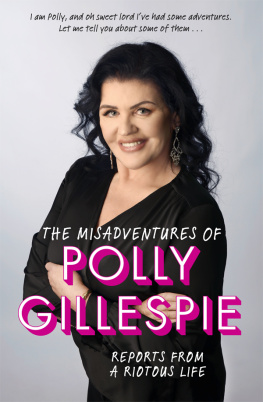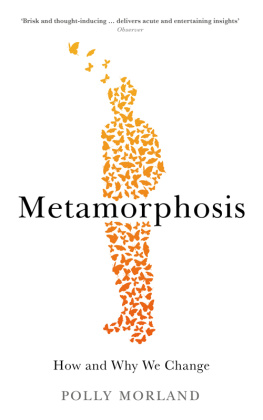Polly Barton - Fifty Sounds
Here you can read online Polly Barton - Fifty Sounds full text of the book (entire story) in english for free. Download pdf and epub, get meaning, cover and reviews about this ebook. year: 2022, genre: Religion. Description of the work, (preface) as well as reviews are available. Best literature library LitArk.com created for fans of good reading and offers a wide selection of genres:
Romance novel
Science fiction
Adventure
Detective
Science
History
Home and family
Prose
Art
Politics
Computer
Non-fiction
Religion
Business
Children
Humor
Choose a favorite category and find really read worthwhile books. Enjoy immersion in the world of imagination, feel the emotions of the characters or learn something new for yourself, make an fascinating discovery.

- Book:Fifty Sounds
- Author:
- Genre:
- Year:2022
- Rating:4 / 5
- Favourites:Add to favourites
- Your mark:
- 80
- 1
- 2
- 3
- 4
- 5
Fifty Sounds: summary, description and annotation
We offer to read an annotation, description, summary or preface (depends on what the author of the book "Fifty Sounds" wrote himself). If you haven't found the necessary information about the book — write in the comments, we will try to find it.
Fifty Sounds — read online for free the complete book (whole text) full work
Below is the text of the book, divided by pages. System saving the place of the last page read, allows you to conveniently read the book "Fifty Sounds" online for free, without having to search again every time where you left off. Put a bookmark, and you can go to the page where you finished reading at any time.
Font size:
Interval:
Bookmark:

FIFTY SOUNDS
A Memoir of Language, Learning, and Longing
POLLY BARTON

Well, how do I know? If that means Have I reasons? the answer is: my reasons will soon give out. And then I shall act, without reasons.
LUDWIG WITTGENSTEIN ,
Philosophical Investigations, tr. G. E. M. Anscombe
The reach of desire is defined in action: beautiful (in its object), foiled (in its attempt), endless (in time).
ANNE CARSON,
Eros the Bittersweet
(language experiences orgasm upon touching itself)
ROLAND BARTHES,
A Lovers Discourse, tr. Richard Howard
Contents
ITS MY LUNCH BREAK AND Im being serenaded by a lime-green owl. Did you know! the owl calls as it swaggers jauntily across my line of sight, There are more people learning languages on Duolingo in the US than there are people learning foreign languages in the entire US public school system!
The year is 2019, and I will soon be traveling to Italy for the summer, which is why I have found myself being taught Italian vocabulary and grammar, along with a variety of trivia, by this digital apparition, the mascot of the language-learning app Duolingo. I learned of Duolingos existence only recently, but it transpires to be phenomenally popular, offering courses in 23 languages to 300 million users worldwide. Initially, there seems to me something faintly Japanese about the wing-gestures made by the mascot, Duo, but I check and discover that the company originated in the United States, as I suppose I should have guessed from the trivia-nugget above; its the brainchild of Luis von Ahn and Severin Hacker, born out of the idea that free education will really change the world.
Duos screech is unvoiced but it sticks in my head nonetheless, whooping and half-demented, Disney-villainesque: Did you know! Did you know! Did you know! And no, as it happens, I didnt know. At least the first time big-eyed big-eyelashed Duo addressed me, I didnt know. By the tenth time it pops up on my screen Ive begun to feel very familiar with this particular bit of trivia, and I also know something else: each run-in with it leaves me feeling a little unclean, in a way I cant really account for.
As the fact I am spending my lunchtimes with Duo reveals, I am not entirely skeptical of its methods, and I dont find the comparison drawn between public-school language education and the Duolingo model outrageous, at least prima facie. Unlike a lot of language-focused applications, Duolingo is not devoid of audio content; it has clips of real people talking, and invites its users to speak phrases into the microphone, so they are at least interacting with how the language actually sounds, and feels in the mouth. While its level-unlocking structure drawn from the world of gaming means that users might be focusing on strategies to pass rather than to truly master, the same accusation could be leveled at language education in schools: there is, in short, a lot of hoop-jumping. You learn the language the way that the exam boards or the green owl want you to, but it is, at least, a start. If it makes language education accessible and enjoyable to those who might not otherwise have access to it, then that is surely a good thing.
So why, then, does Duos factoid bring me such a sense of unease, and why do I begrudge his hooting pride? It dawns on me that the source of my discomfort resides, utterly unreasonably, with his use of the word learning. I say unreasonably, because I recognize that this word is used legitimately to cover a whole range of activities undertaken with varying degrees of intensity. The generous, rational part of me can see there is no cause to bar people from calling their five or twenty minutes a day on Duolingo learning a language. But even as I have this thought, another part of me stamps its foot resentfully, the kind of foot-stamp that ends up hurting the stamper, and declares that the world has turned its eyes from what is real and true. This part wants to say its piece. It wants wider recognition that there is another, far less stable form of learninga radium to Duolingos lurid neon.
The language learning I want to talk about is a sensory bombardment. It is a possession, a bedevilment, a physical takeover; it is streams of sounds pouring in and striking off scattershot associations in a manner so chaotic and out of control that you are taken by the desire to block your earsexcept that even when you do block your ears, your head remains an echo chamber. The language learning that fascinates me is not livening your commute and scoring a dopamine hit with another 5 in a row! Way to go! Rather, it is never getting it right, hating yourself for never getting it right, staking your self-worth on getting it right next time. It is getting it right and feeling as if your entire existence has been validated. It is the kind of learning that makes you think: this is what I must have experienced in infancy except I have forgotten it, and at times it occurs to you that you have forgotten it not just because you were too young when it happened but because there is something so utterly destabilizing about the experience that we as dignified, shame-fearing humans are destined to repress it. It is a learning that doesnt know goals or boundaries, and which is commonly known as immersive. The image that springs to mind is a lone figure wading gallantly into the sea, naked, without a single swimming lesson behind them.
As youll have inferred from my self-righteous tone, I speak from experience. Immersion is exactly what I did when I went to Japan, although probably its more correct to say that immersion is what happened to me. If Id known what I was getting myself into before I went out there I may well not have had the nerve to go, and knowing this, I dont go around patting myself on the back for having done it. At least, I dont believe that I do, until Im confronted with the pride of a green owl, and then I realize that there is some part of me that wants for this experience of mine to be recognized. Not only is this part not rationalits furious with all the goal-driven rationality of the commute-friendly app.
In particular, what Im burning to tell Duo is the following: Did you know! When you immerse yourself in a very different language as a total beginner, not only do you not have goals! You also have no system within which to conceptualize what those objectives could bediscounting, that is, overarching goals like learning to read, or becoming fluent, which themselves start to seem less and less meaningful the more you poke around beneath their smooth surfaces!
Immersion in a foreign language is a bombardment of sounds, until you decide that you are going to actually do this thing and learn, and then it becomes a bombardment of imperatives: learn this, learn this, learn this. Just start from the basics, sings a voice in your head as you are tossed around in the waves of incomprehensibility. Yet as you continue to live in a language you dont know, it becomes increasingly obvious to you how much this category of basics could theoretically encompass. Greetings and everyday interactions are of course basic, and there is always something embarrassing about not knowing basic forms of verbs. Everyone knows numbers are incredibly basic, as are colors, clothes, the subjects you study at school, animals, anything to do with weather, and adjectives for describing people. In fact, we could go ahead and say that every object is also basic, and there is something particularly alarming when you dont know how to say the first words you would have learned in your language(s) as a child: teddy, buggy, shoelace. And then there is the most fundamental-seeming vocabulary of all: abstract nouns, like justice, friendship, pleasure, evil, and vanity.
Font size:
Interval:
Bookmark:
Similar books «Fifty Sounds»
Look at similar books to Fifty Sounds. We have selected literature similar in name and meaning in the hope of providing readers with more options to find new, interesting, not yet read works.
Discussion, reviews of the book Fifty Sounds and just readers' own opinions. Leave your comments, write what you think about the work, its meaning or the main characters. Specify what exactly you liked and what you didn't like, and why you think so.










